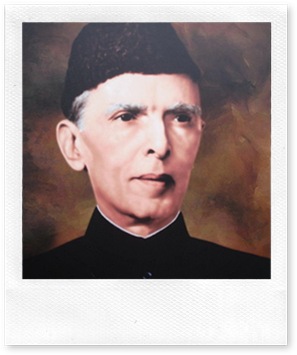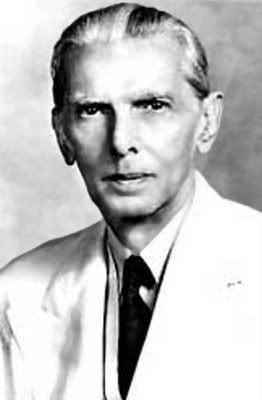
Bronze statues of Quaid-e-Azam, Sir Syed Ahmed Khan and Allama Iqbal put on display at the Science and Technology Expo-2007 held at National Memorial Museum in Shakarparian in Islamabad.
 In the wake of frequent cultural and political exchanges between the two countries the supporters of secular Pakistan have increased their propaganda, have geared up their efforts and have created some forums to spread this notion. All those who subscribe to the secularistic view are bending backward to prove the Quaid as secular. They base their arguments on 11 August 1947 speech of the Quaid which he delivered in the first Constituent Assembly of Pakistan.
In the wake of frequent cultural and political exchanges between the two countries the supporters of secular Pakistan have increased their propaganda, have geared up their efforts and have created some forums to spread this notion. All those who subscribe to the secularistic view are bending backward to prove the Quaid as secular. They base their arguments on 11 August 1947 speech of the Quaid which he delivered in the first Constituent Assembly of Pakistan. For many decades now, Quaid-i-Azam Muhammad Ali Jinnah’s vision of Pakistan has been a point of contention, yet also a great source of inspiration. A careful examination of his long distinguished public service, spanning some 44 years (1904-48), can aid in defining how he perceived the future of Pakistan.
For many decades now, Quaid-i-Azam Muhammad Ali Jinnah’s vision of Pakistan has been a point of contention, yet also a great source of inspiration. A careful examination of his long distinguished public service, spanning some 44 years (1904-48), can aid in defining how he perceived the future of Pakistan. The poetry of Allama Iqbal was a breath of fresh air throughout Pakistan Movement... ...This is the historical and extremely memorable pic o...
